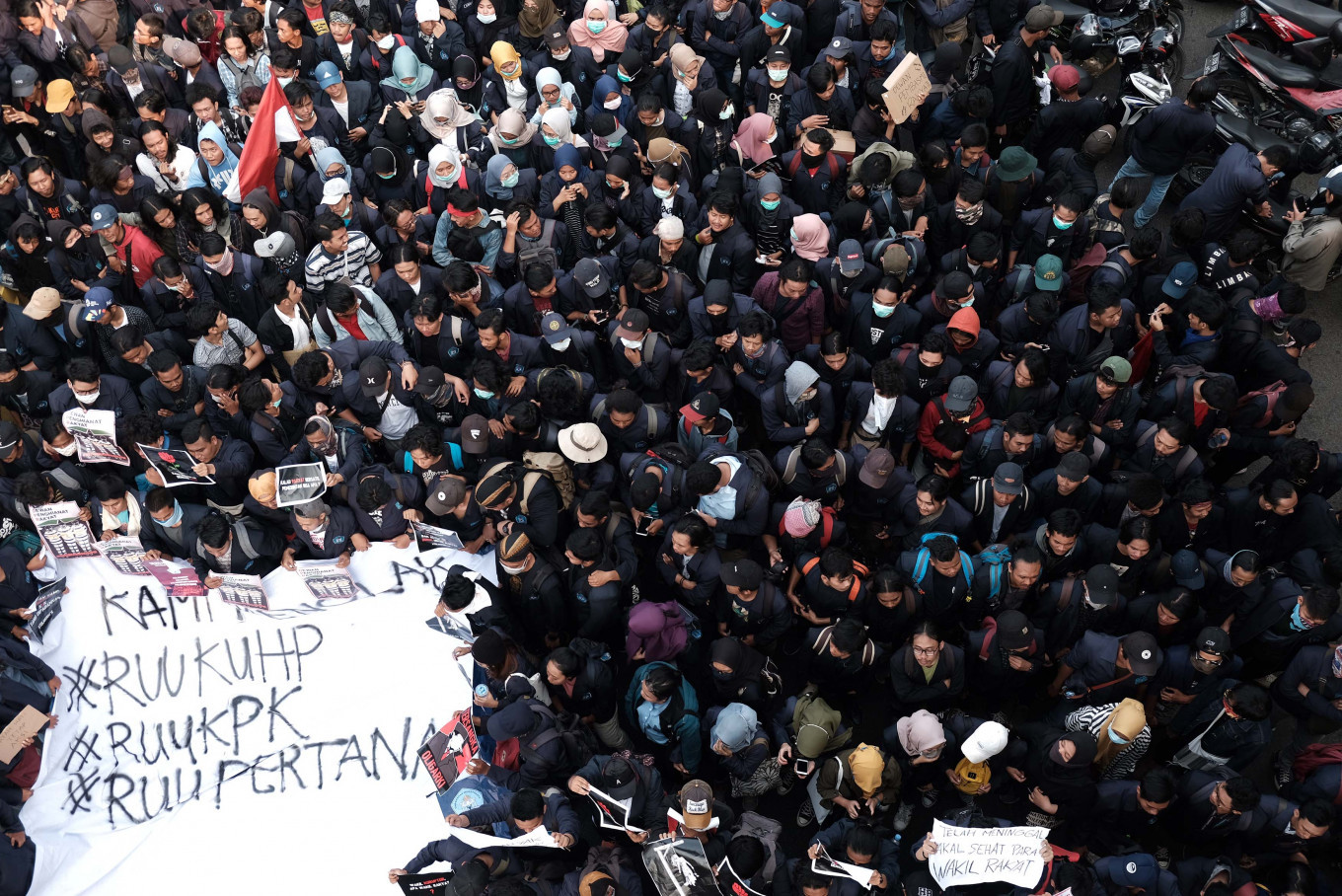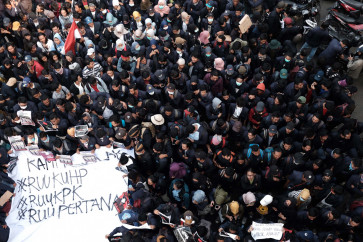Popular Reads
Top Results
Can't find what you're looking for?
View all search resultsPopular Reads
Top Results
Can't find what you're looking for?
View all search resultsDifferent challenges, same ideals for student movements after 'reformasi'
Twenty-five years since student movements helped bring about the fall of president Soeharto, the reputation of student movements as the vessel for the people’s aspirations still holds true. Despite their lofty reputation, however, the student movements of today have yet to affect similar change as their predecessors.
Change text size
Gift Premium Articles
to Anyone
Twenty-five years since student movements helped bring about the fall of president Soeharto, the reputation of student movements as the vessel for the people’s aspirations still holds true. Despite their lofty reputation, however, the student movements of today have yet to affect similar change as their predecessors.
In a survey conducted in April 2022, Litbang Kompas found that 43 percent of respondents believed that student movements were the group that most represented public aspirations. Political parties, which technically represent the public as members of the House of Representatives, only received 3.3 percent of the votes.
Despite having not yet been born when thousands of students occupied the House complex in Jakarta in 1998, Kaharuddin, who led one of two factions of the National Association of University Student Executive Bodies (BEM-SI) in 2021, maintained that the student activists of today are still building on the legacy of those who came before them.
“When those in power deviate from the Constitution, the students must have to be ever present in keeping the government in check," Kaharuddin told The Jakarta Post on Saturday. “When you see student movements taking to the streets, that’s a sign that something is seriously wrong."
While student movements continued to be vocal critics of the government after the fall of Soeharto, it was not until September 2019 that they began to coalesce into a massive force almost on the scale of the 1998 student protests.
Under the banner of #ReformasiDikorupsi (reform corrupted), student movements across the country took to the streets to protest against the planned revision of the Criminal Code (KUHP) and the new Corruption Eradication Commission (KPK) Law.
Read also: Students lead the way, again



















